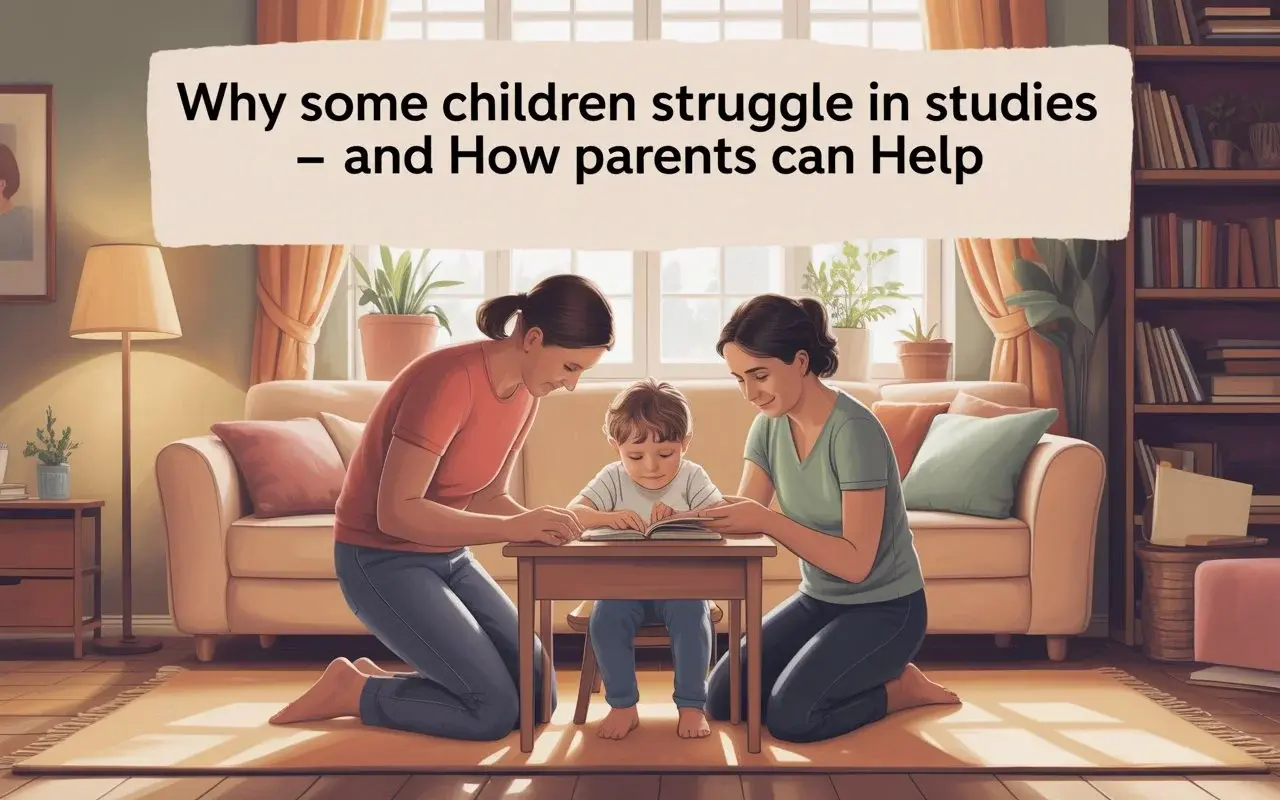Why Some Children Struggle in Studies – And How Parents Can Help




Every parent wants their child to do well in studies. But sometimes, even the most hardworking children face difficulties in learning. This doesn’t always mean they are “weak” or “lazy.” In many cases, factors like the home environment, learning style, emotional health, and study habits play a bigger role.
With the right support, children can overcome these struggles and build confidence in their studies.
There are many reasons why a child might fall behind in academics. Some of the common causes include:
Every child learns differently. Identifying the root cause is the first step to improvement
Parents often realize late that their child is having problems in studies. Watch out for these signals:
Academic struggles often affect a child’s emotions. Children who feel pressured or compared may:
Tip for Parents: Praise effort, not just results. Encourage mistakes as part of learning.
Parents play the most important role in shaping a child’s learning journey. Here’s how:
Parental Role | Impact on Child |
| Creating a learning environment | Builds focus and discipline |
| Encouragement & support | Improves confidence |
| Setting routines | Improves consistency |
| Staying involved | Helps track progress |
| Positive reinforcement | Reduces fear of failure |
A strong parent-child relationship makes learning less stressful and more enjoyable.
Simple steps can make a big difference in your child’s learning journey:
Teachers and schools also play a big role in helping children:
A parent-teacher partnership is key for student success.
Academic performance is also linked to lifestyle. Children learn better when they:
Technology is a double-edged sword:
Positive Use | Negative Use |
| Online classes, educational apps | Excessive gaming |
| Learning videos & tutorials | Social media distractions |
| Digital practice sheets | Reduced attention span |
Balance is the key, set limits and guide children to use technology wisely.
If your child continues to struggle despite your support, professional help may be needed. Experts include:
Early help prevents long-term struggles.
A supportive home environment can transform learning.
Every child is capable of learning and succeeding. Struggles in studies are not the end, but a signal that they need guidance, patience, and the right environment. Parents play the strongest role in helping children turn weaknesses into strengths.
At Interval Learning, we believe every child deserves the chance to learn with confidence. Interval’s Foundation programs focus on child development, creating the right learning environment, and helping students improve from the base itself.
Explore Interval Learning to know how we can support your child’s academic journey.
Take a free assessment and know why your child is struggling and how interval learning can help!
Children may struggle due to distractions, learning gaps, lack of motivation, or emotional stress, not because they are “weak.”
By setting routines, providing encouragement, staying in touch with teachers, and creating a positive study environment.
Parents are role models. Their support, encouragement, and involvement build the foundation for academic success.
Tutors can help, but first identify if the issue is academic, emotional, or environmental. Sometimes children need guidance more than tuition
If your child shows constant anxiety, fails to improve despite efforts, or struggles with basic reading/writing, professional help is recommended.
It’s a structured program designed to strengthen the basics of learning. It focuses on child development, improving study habits, and creating the right learning environment, helping children improve step by step.
Yes! Interval Learning offers free assessments that help identify your child’s strengths and struggles. This allows parents to understand the exact areas where their child needs improvement before enrolling in a program.